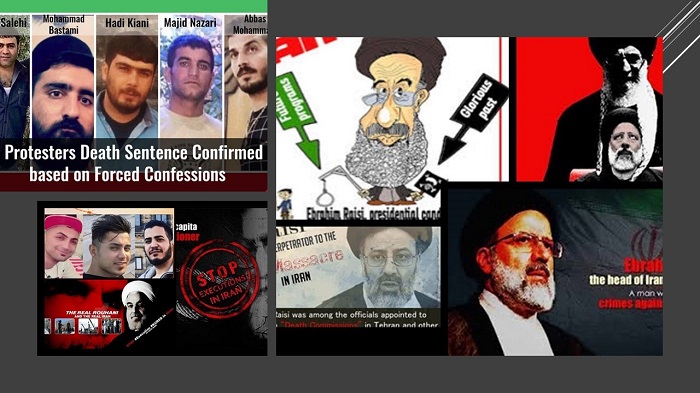

Five individuals have just learned that their death sentences are being upheld by the Supreme Court in Isfahan. The individuals in question are Mehdi Salehi Ghale Shahrokhi, Mohammad Bastami, Majid Nazari Kondori, Hadi Kiani, and Abbas Mohammadi.
During December 2017 to January 2018 uprising in Iran, many protesters were arrested and handed the death sentence. According to some, they have been handed two death sentences for two different charges – one for taking arms against the government and another for “waging war against God”.
The US “will always stand with the Iranian people in their struggle for true justice,” a State Department spokesperson told Al Arabiya English on Tuesday, in reaction to #Iran suspending the execution of three protesters due to an online campaign.https://t.co/UhmrDxF4z8
— Heshmat Alavi (@HeshmatAlavi) July 22, 2020
The Iranian regime is currently in a very delicate situation where it is already under significant pressure from abroad and all indications show that this will be maintained or increased. Furthermore, the domestic situation is rather tense, with the people of Iran angry at the regime that has not only subjected them to years of repression but is currently making them extremely vulnerable during the COVID-19 pandemic that is still affecting millions across the country.
According to The People’s Mojahedin Organization of Iran (PMOI / MEK Iran) on Tuesday, July 28, 2020, the COVID-19 death toll across Iran had passed 78,100.
To try to regain the control that is slipping away, the Iranian regime has been cracking down hard on protesters and trying to dissuade them from speaking out. During the November 2019 uprising, many thousands of protesters were arrested, injured, or killed and in the past few months the regime has been handing out tough prison sentences.
The regime has also been overtly warning the people of Iran that any “rioters” will be dealt with “decisively”, with this message being conveyed in several ways including during Friday prayer sermons.
The regime was recently forced to temporarily halt several executions of protesters. Amir-Hossein Moradi, Saeed Tamjidi, and Mohammad Rajabi were arrested because they participated in the uprising last November. There were international calls for the executions to be halted when the Supreme Court upheld their death sentences, so the regime – fearful of harmful blowback – said that the lawyers of the three men could, for the first time, review the evidence against their clients.
Ebrahim Raisi, the regime’s Justice Minister, was not happy with this decision and said that the uprising was the work of people on social media. He also called on the rest of the judiciary to be very wary of protesters.
Raisi was one of the most influential members of the “Death Committee” in #Tehran and along with its other members was responsible for the execution of at least 10,000 political prisoners #1988Massacre https://t.co/Wy8mtr4PDv
— Iran Freedom (@4FreedominIran) July 27, 2020
During the Iranian Resistance’s annual Free Iran gathering earlier this month, dozens of distinguished guests including politicians, human rights activists, former administration officials, dignitaries, and so on, spoke about the Iranian regime’s belligerence and the urgent and immediate need to hold it responsible for its malign actions. Many spoke about the regime’s horrific human rights record, saying that these violations cannot be ignored.
There was overwhelming hope that the international community would soon stop ignoring the regime’s mistreatment of its people. The success of this Free Iran gathering is another blow to the regime that is weakening with every day that passes. As president-elect of the National Council of Resistance of Iran (NCRI), Mrs. Maryam Rajavi said, the regime cannot survive if it abandons its malign policies.
Extensive sentences to prison for expressing political views is the other side of torture and execution by the regime in #Iran. We want you to speak out with us, against the death penalty and for freedom of political prisoners. We can stop the killing machine
#لغو_فوری_اعدام pic.twitter.com/YzSGNFftbp— Iran Freedom (@4FreedominIran) July 28, 2020







